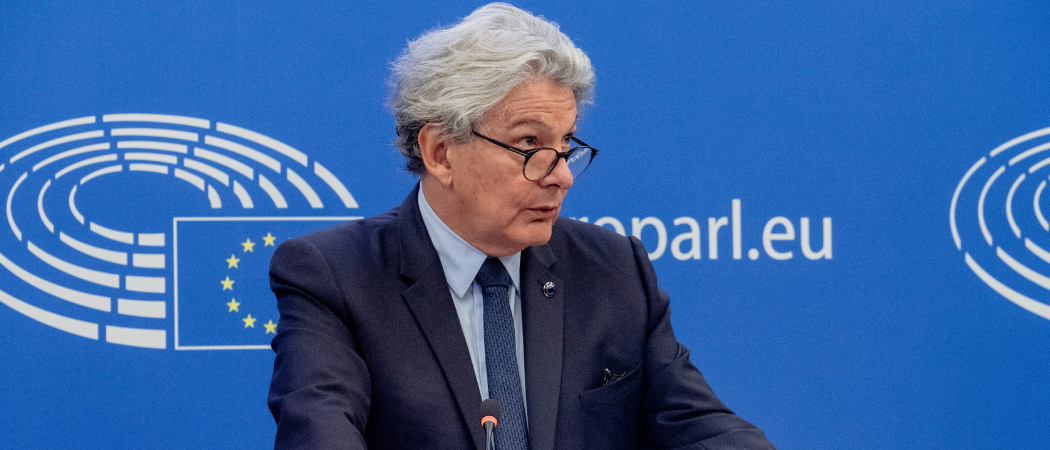EU officials say economic security assessments are a first step towards gaining competitive edge in semiconductors, artificial intelligence, quantum computing and biotechnology

EU commissioner for the internal market Thierry Breto. Photo: Valentine Zeler / European Union
The EU is to start assessing the economic and societal risks posed by the potential leakage of critical technologies, amid rising geopolitical tensions with China, the European Commission announced today.
The risk assessment, due to be published by the end of the year, will evaluate the EU’s dependencies and vulnerabilities in advanced semiconductors, artificial intelligence, quantum and biotechnology.
EU commissioner for the internal market Thierry Breton said the four technologies pose “imminent risks” to the bloc’s technology sovereignty.
Publishing the list of sensitive technologies is the first concrete step taken by the Commission to deliver its European economic security strategy, a broader plan announced this summer to assess the risks facing the EU economy amid rising geopolitical tensions within Europe and between the west and China.
“Technology is currently at the heart of geopolitical competition and the EU wants to be a player, not a playground, and to be a player we need a united position which is based on a common assessment of the risks,” said Věra Jourová, EU Commission vice president for values and transparency.
The list of technologies that are critical to the EU’s economic security has been drawn up based on three criteria: their potential for enabling further technological and societal transformations; the risk of being transferred to military applications; and the risk of misuse against human rights.
The Commission does not exclude the possibility of taking protective measures against international competitors, but it would also favour boosting investment in certain fields, or partnering with like-minded countries on jointly developing sensitive technologies.
The decision to assess the risks posed by the four technologies is not a signal it will automatically lead to international restrictions such as export controls. “We are not prejudging any measures we may take,” a Commission official said.
Member states and the Commission will first work on identifying and quantifying the risks before coming up with plans to mitigate foreign interference and technology leakage. Mitigation plans would be “always guided by the principles of proportionality and precision,” the official added.
The Commission is working with member states on collective risk assessments in the fields of advanced semiconductors, artificial intelligence, quantum technologies and biotechnology. It has further identified six other areas that could be assessed in the near future with member states.
By the spring of 2024, the Commission will decide if it will move forward with assessments of six other technologies, beyond the first four identified today, depending on input from member states and the private sector.
Back in July, Belgium, Finland, the Netherlands, Portugal and Slovakia published a joint paper on open strategic autonomy, calling on the EU to come up with a coordinated technology strategy, to advance excellence in research and innovation and to speed up the transfer of technologies from lab to scalable companies.
The EU has been trying to become less dependent on technologies imported from China, and to ensure it can lead globally in a number of critical fields.
The topic of ‘strategic autonomy’ has quickly become the one of the main political mantras of the current college of EU commissioners led by Ursula von der Leyen. With only a few months of her mandate, von der Leyen used her last state of the union speech to warn once more against the imminent perils of lagging behind China when it comes to critical technologies.
The EU has also reduced the intensity of scientific cooperation with China, with the participation of the communist country in Horizon Europe becoming increasingly limited to basic research. The Commission has banned researchers based in China from joining Horizon Europe calls for projects that are closer to the market.
A Commission official said the new plan for assessing the four critical technologies is a “follow up on [von der Leyen’s] commitment during her speech to de-risk our interdependencies.”





 A unique international forum for public research organisations and companies to connect their external engagement with strategic interests around their R&D system.
A unique international forum for public research organisations and companies to connect their external engagement with strategic interests around their R&D system.